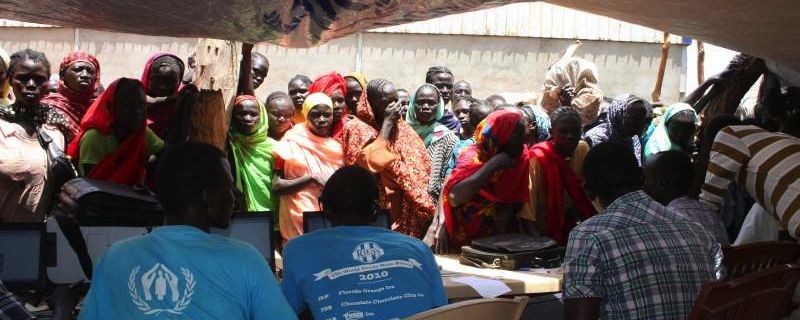The UN Refugee Agency (UNHCR) in South Sudan says that its operations in northern Unity state have been affected by violence in the state, putting at risk Nuba refugees living at Yida camp.
Yida camp hosts about 70,000 refugees from neighbouring Sudan, while the nearby Adjoung Thok camp hosts another 10,000. They were based in the country before the December 2013 brought war to South Sudan as well, having fled from the Nuba Mountains, a territory contested by Sudanese rebels and the Khartoum government.
Owing to the location of the camp in the far north of South Sudan, the logistics of bringing supplies and food to the refugees was already complicated before the conflict in Unity state. Now, with fighting still ongoing in Rubkona and Mayom counties, the area is effectively cut off except by air.
Cleophas Mubangizi, head of UNHCR’s sub-office for Pariang County, told Radio Tamazuj that basic service delivery was impacted by lack of road access to Pariang because of fighting resulting in rationing.
“In Bentiu, it has been difficult because there is still active fighting and we are unable to bring in supplies… This has brought a lot of constraints for us because we cannot get enough supplies to keep the operation moving,” he said.
The UNHCR official disclosed that a lot of supplies meant for the refugees including household items, food, fuel and construction materials were stuck at various points along the route unable to proceed further because of the insecurity, with some supplies at Wau, Rumbek or Kuacjok.
“This has had an impact on service delivery because we have less supplies so this has forced us to go into rationing what we have,” stated the UN official.
With the rains approaching, the last window of opportunity to bring these supplies in by road is quickly closing: “If we are not going to get more security at those points in Mayom and Bentiu, we will be unable to bring in things – more supplies – and this will affect our operation in Pariang.”
“If security does not improve and the rains start, we will be in a very difficult situation and we will be forced to scale down on the very basic lifesaving activities,” emphasized Mubangizi.
The official warned that more resources will be needed in order to airlift food later if the supplies are not brought in soon. He pointed out that the logistics of bringing in things by air is very expensive.
In his remarks to Radio Tamazuj, Mubangizi also thanked the refugee community for being resilient, supportive and working hard. He appealed to them to keep up this spirit and support the operations and the humanitarian workers.




